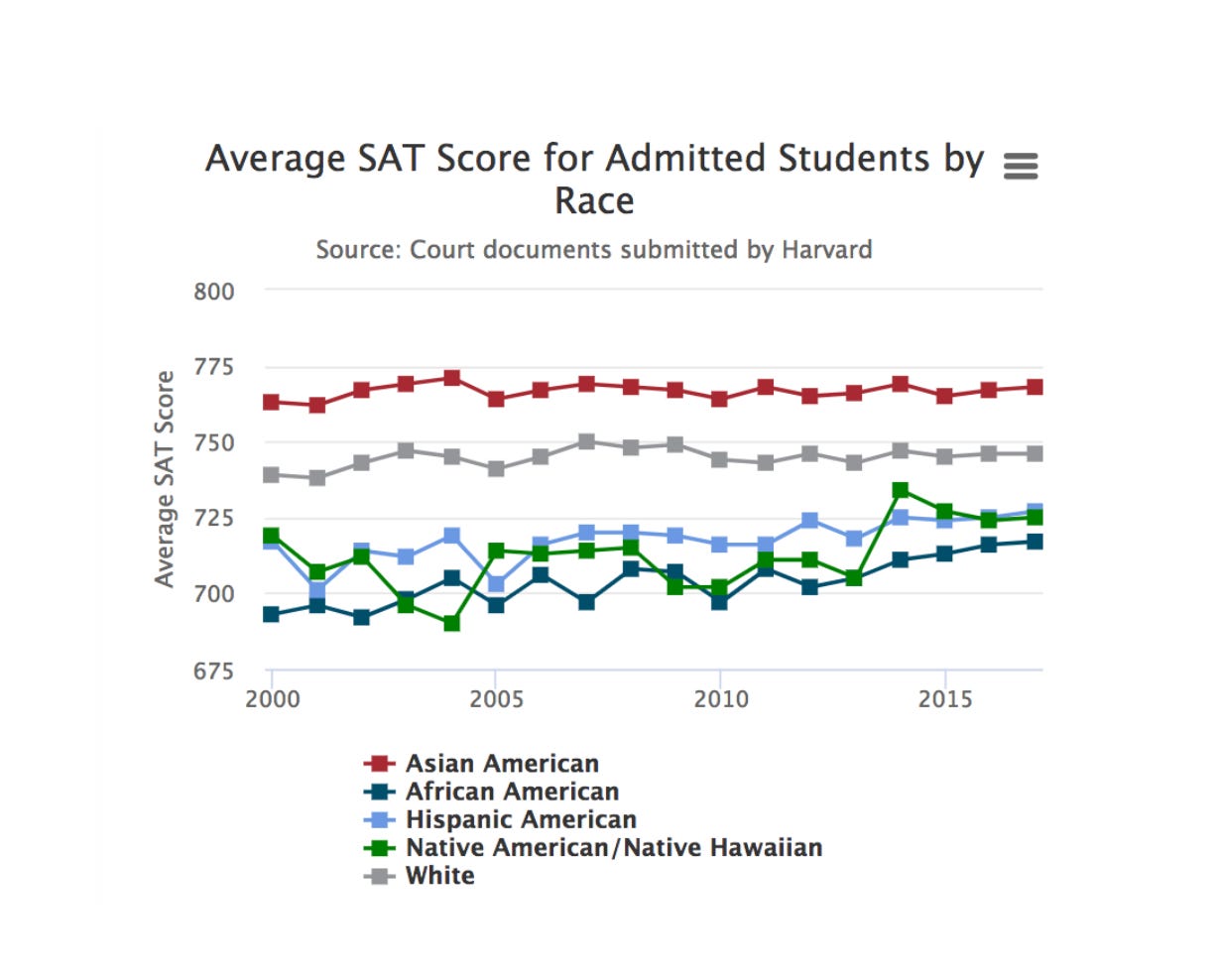Heritability, race, and police bias
Kareem Carr's blunder
This was given to me as an example, so let's cover it even though it's two years old. Archived.
So let's try his idea out. Here's what I did (R code):
Simulate twin data for Blacks and Whites, MZs and DZs, with a latent crime variable (criminality) with correlations of .50 and .25 (heritability 50%).
Dichotomize these to produce criminal or not criminal status for each person using a threshold.
Add police bias against Blacks. This was done using a simple approach where every Black person is given X% chance of being convicted for "doing lots of stuff while being Black" as he puts it. We then let X vary between 0-100% and observe the effects of increasing police bias on twin-based heritability estimates.
To derive heritability, we compute the latent correlations (tetrachoric in this case) and apply Falconer's formula (2*(MZ-DZ)). One could do something more fancy with SEM, but since my sample sizes are arbitrarily large (I used 100k), this is pointless.
Results:
So, akshually, increasing anti-Black police bias causes Black heritabilities to go down, and naturally doesn't affect the White results. As real life heritability results are mainly from Whites, this is a nonstarter. But for the Black ones, Kareem is wrong, as his purported bias goes in the wrong direction. In fact, in a completely systemic racist country, heritability for Blacks would be undefined, as every person is a "criminal".
We can also show that adding a chance element to this doesn't affect matters. A chance element matters because we of course don't think the police always catches every criminal. Rather, the more criminal acts you commit, the higher the chance the police will eventually catch you. We can model this by converting the latent criminality score into a probability of being caught and then rolling the dice for that probability. This then also produces a binary status for each person. From these, we can compute heritability as before. It might look like this:
Note that randomness in the justice system deflates the heritability estimates (true value 50%, observed at 0% bias is about 40%). This tells us something important, namely, that the regular estimates of heritability of criminality are too low. I covered this topic in detail in other posts, so give them a read (Heritabilities are usually underestimated, Measuring antisocial behavior well). This is somewhat ironic, because the critics of the justice system are the same people who tend to dislike high heritabilities. But the more you believe that the justice system data's are noisy, the more you have to adjust the heritability estimates upwards because these are more deflated by the randomness. Here it would be nice to have estimates for both Black and White heritability, to see if these are also the same. We did a meta-analysis of such studies for intelligence, but I don't recall ever seeing a Black twin study for criminality. One could compute a poor man's version using sibling correlations in public dataset. There's a few options: NLSY79, NLSY97, CNLSY (NLSYlinks), and Add Health. If these were combined, perhaps it would be sufficient precision for seeing whether the overall estimates differ.
The self-promooter
While we are at it, here's his Twitter profile:
So we got it: PhD student in statistics, Harvard, tweets about how to do stuff because this guy knows. Let's then look at his research output:
A measly 168 citations. Of these, 76% are from a paper where he is a middle author among many. Shrug tier. His only first author paper is from 2010 (13 years ago that is). It looks decent enough if on the boring side.
Kareem, then, is a prototypical Kardashian type. Massive ego on social media, basically no scientific output. He's presumably a big beneficiary of affirmative action.
We covered a few of these kinds of people before, Adam Rutherford comes to mind as being a similar case, but he's at least writing some popsci books (even if they are egalitarian ideology books).








What would the heritability be for the whole population, Whites and Blacks?
Repeated sentence in the last paragraph. "Note that randomness in the justice system deflates the heritability estimates (true value 50%, observed at 0% bias is about 40%). Note that randomness in the justice system deflates the heritability estimates." Also, "We can also show that adding a chance element to this doesn't effect matters." Should be affect. Feel free to delete this, obviously.